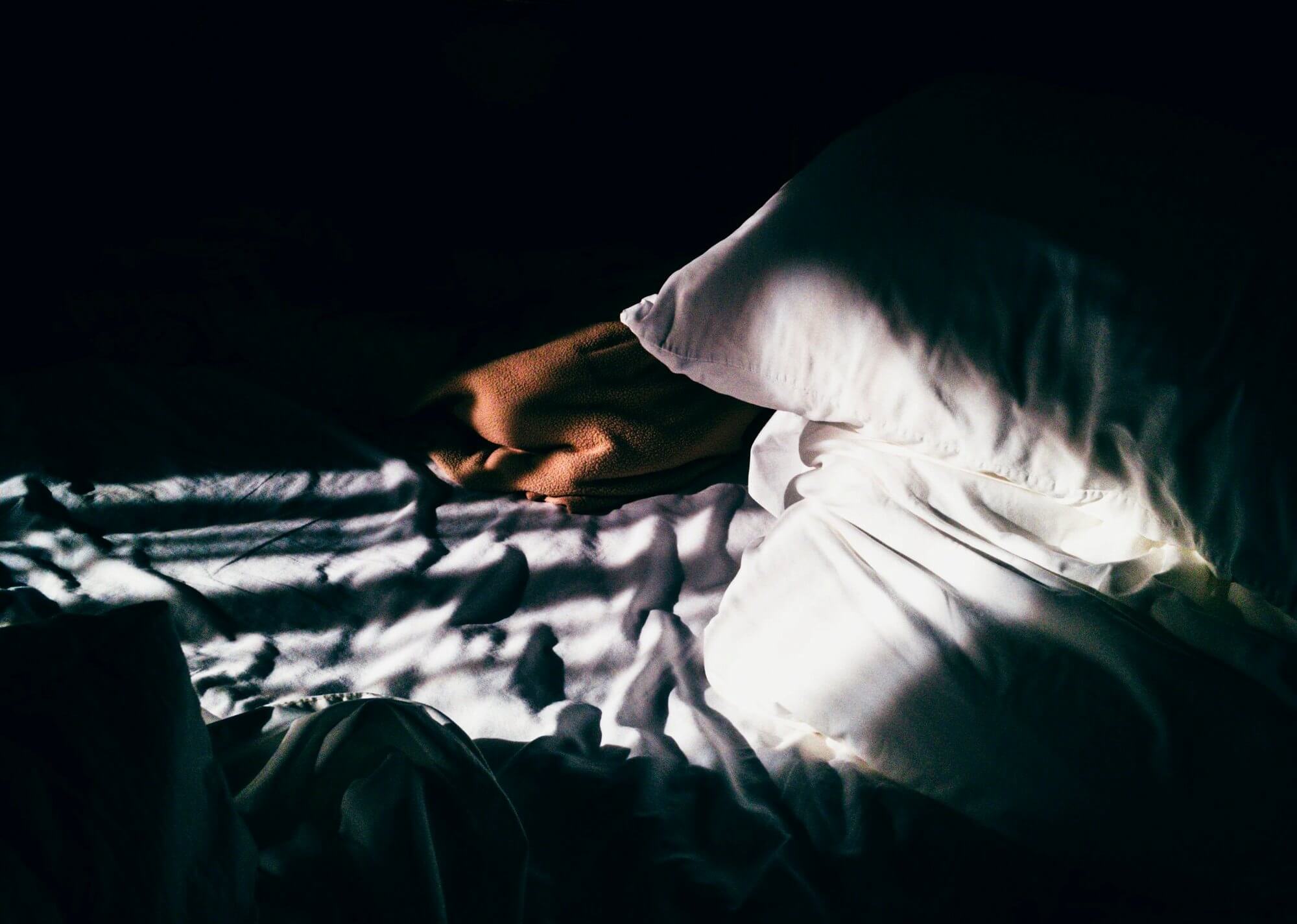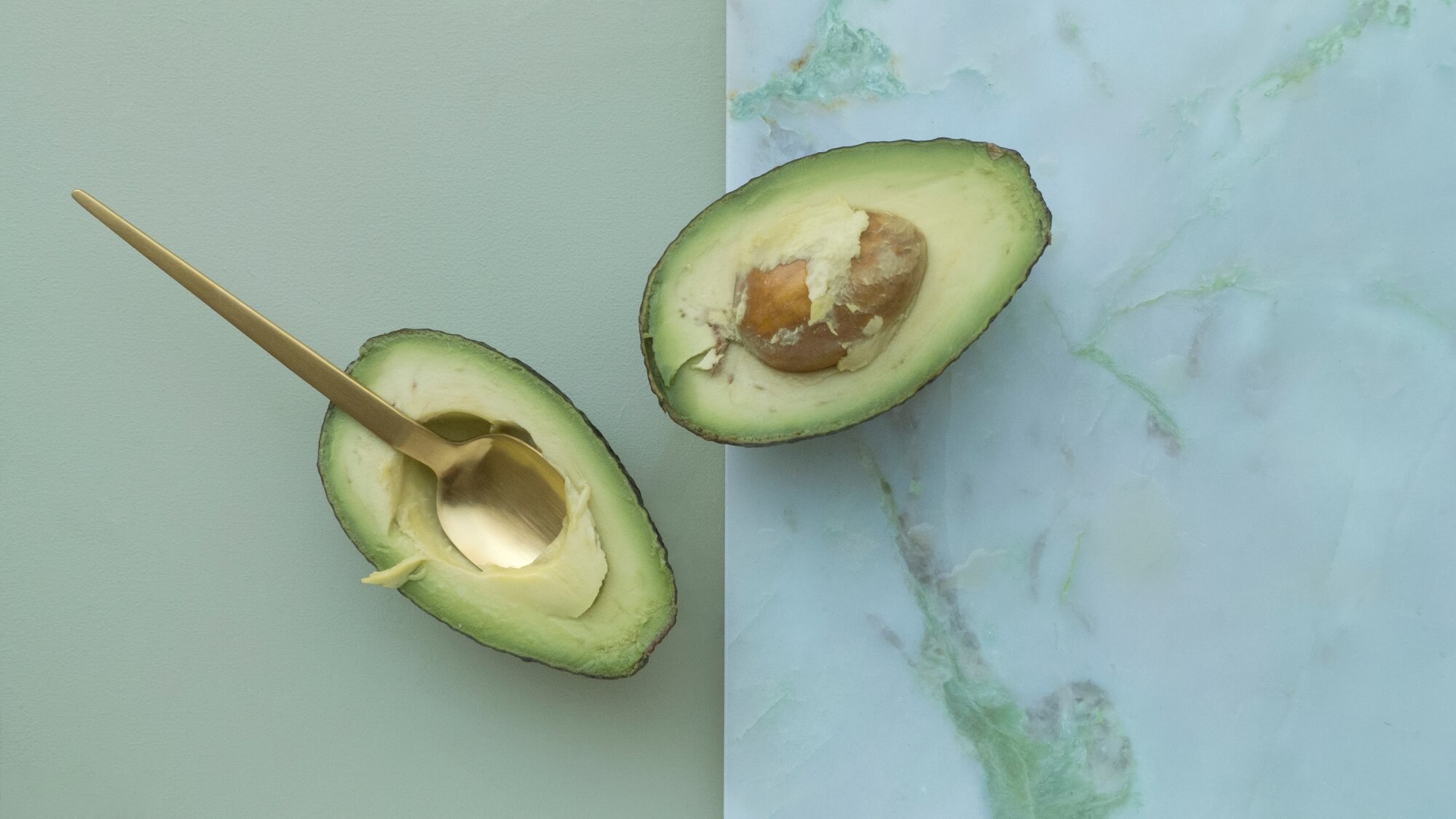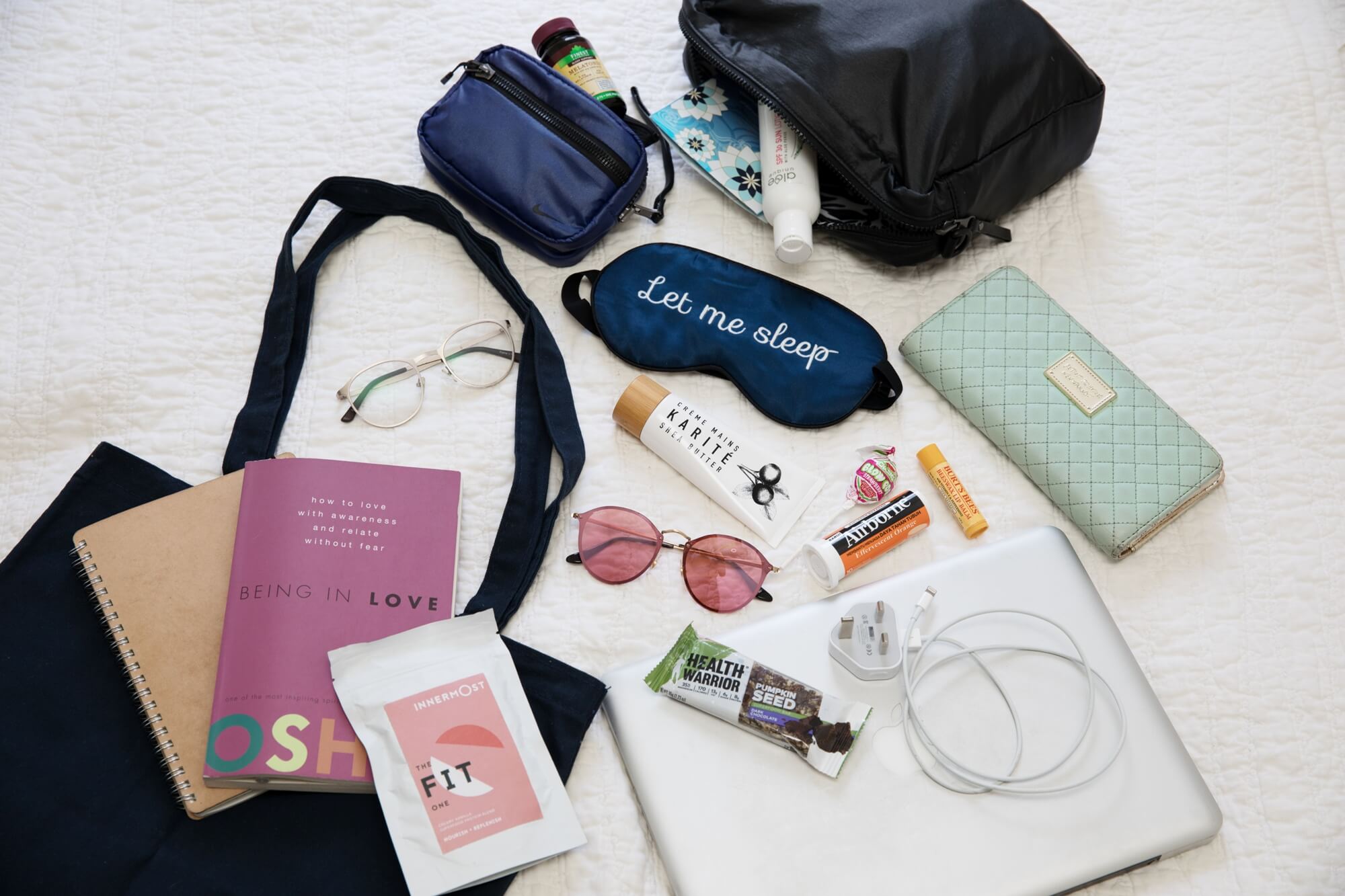
We should all be practicing sleep hygiene
Jet lag? Loud hotel? Crazy schedules? It'll help with all travel woes.
Ginger shots, mushroom powder, vitamin C tablets: You’ve been taking all. the. things. to make sure that you don’t get sick mid-trip.
And then you can’t fall asleep—whether because of jet lag, a raging party happening in the hotel room above you, or the fact that, like, 25% of people, you suffer from some form of insomnia and being in a new bed def isn’t helping—and all the immunity boosting tricks can’t save your body.
The fact is that sleep not only affects our energy (key when you’re supposed to go to five museums in as many days), but our mood and our ability to ward off sickness. Which means that bad sleep is the fastest way to ruin a trip (okay, minus an epic flight delay).
When it comes to staying healthy while traveling, “it’s really all about understanding sleep hygiene,” says Miami-based integrative medicine expert Elizabeth Trattner, AP, DOM. Sleep hygiene isn’t some weird spa treatment, but rather, a set of practices that improve your nighttime sleep quality (and therefore your daytime vibes). At home, it might look like having a regular bedtime or staying off Instagram right before you slip under the covers; on the road, your sleep hygiene changes.
But just like you wouldn’t stop showering because you were traveling, introducing—and actually keeping up—certain habits are kinda necessary. Here’s what Dr. Trattner wants you to think about when you’re prepping to get your zzz’s far from home.
Pack right
You’ve got your TSA-approved liquids and your portable supplements. But consider adding a few sleep-related extras into your go kit. “Pack ear plugs, bring headphones, and make sure if you snore that you’re packing [nose] strips so you can sleep,” suggests Dr. Trattner.
Reserve wisely
They’re called accommodations for a reason—so don’t be afraid to request certain things when you book your room. If you’re a light sleeper, Dr. Trattner recommends staying away from elevators, stairwells, or rooms overlooking busy streets to cut back on noise. If the jet-lag struggle is real, request a room with south-facing windows (that is, if you’re in the northern hemisphere—you’ll want north-facing windows if you’re in the southern hemisphere). “It’s really important to expose yourself to both dusk and dawn when you travel—and you get the best light in the south-facing rooms.”
Prep the senses
Blackout shades and an eye mask are great, but it’s more than just sight that can help you get those zzz’s. “That crazy noise on an airplane makes me fall asleep in, like, two seconds, so I have a white noise app that sounds like an airplane,” notes Dr. Trattner. “Download one on your phone—there are tons of them.” You can also pack a tiny white noise machine, if you prefer to turn your phone off while you sleep. The other thing she recommends? Aromatherapy (she swears by lavender or rose).
BYO pillow
If you’re tossing and turning in your hotel bed, it might not be the time difference that’s setting you off. In fact, the culprit could be right under you: the pillow you’re sleeping on. “A lot of [hotel pillows] are full of dust mites,” explains Dr. Trattner. (Gross.) “Your immune system is already compromised, and most hotels aren’t using dust mite-proof pillow covers or mattress covers, so bring your own pillow if you can.” Short on space? We’re kind of obsessed with this little guy.
Turn-down (service) for what?
It’s been a long day. You’ve been running around and are finally back to your hotel room. And then you see it: that glistening gold foil on your bed. Yup, the turn-down service has left a little treat for you. In the words of Duran Duran: save it for the morning after. “Don’t eat the chocolate on the pillow—it’s stimulating,” warns Dr. Trattner. Put it on your bedside table and enjoy when it’s not 11 p.m. local time, 5 p.m. home time, and you really, really need to fall asleep.
When in doubt: melatonin
If you’re crossing several time zones or know that jet lag hits you like whoa, consider packing melatonin. It’s a hormone that helps signal to your body that it’s time to sleep—and if you’re not naturally producing it because your brain is all, “Um excuse me, it’s not the time I normally go to bed,” taking it in supplement form can help. Bonus: It won’t leave you groggy like traditional drugs. “I don’t promote using prescription sleep aides unless you’ve got a different issue, but bring melatonin if you can’t sleep to adjust to time zones,” says Dr. Trattner. “There are really great formulas at health food stores.”




